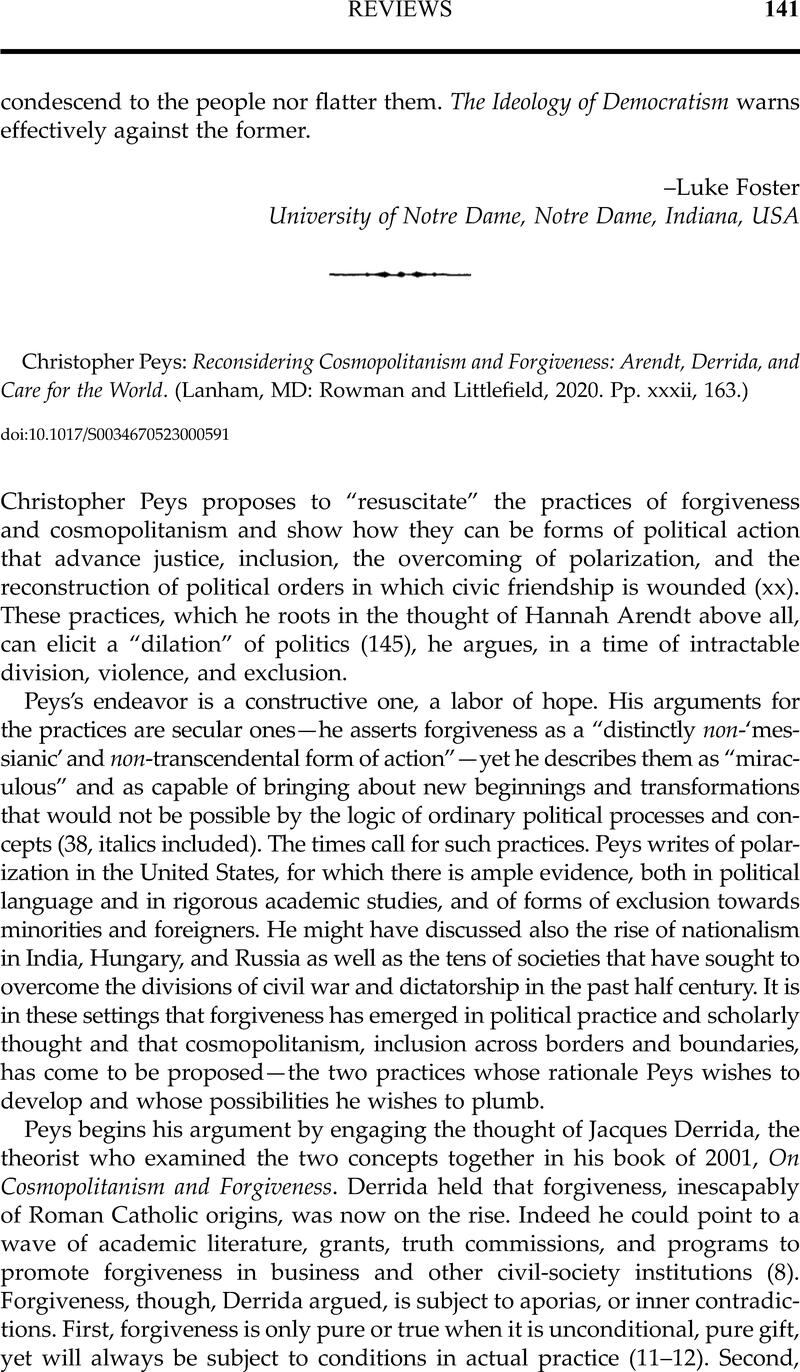No CrossRef data available.
Article contents
Christopher Peys: Reconsidering Cosmopolitanism and Forgiveness: Arendt, Derrida, and Care for the World. (Lanham, MD: Rowman and Littlefield, 2020. Pp. xxxii, 163.)
Review products
Christopher Peys: Reconsidering Cosmopolitanism and Forgiveness: Arendt, Derrida, and Care for the World. (Lanham, MD: Rowman and Littlefield, 2020. Pp. xxxii, 163.)
Published online by Cambridge University Press: 29 November 2023
Abstract
An abstract is not available for this content so a preview has been provided. Please use the Get access link above for information on how to access this content.

- Type
- Book Review
- Information
- Copyright
- Copyright © The Author(s), 2023. Published by Cambridge University Press on behalf of University of Notre Dame


